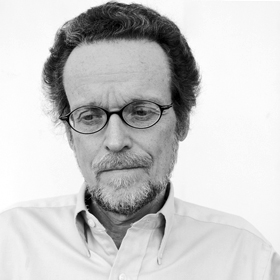Pogge's solution to global poverty is not as good as it may seem
Pogge’s Global Resource Dividend (GRD) has been criticised as an unrealistic or impractical proposal, but there are also significant normative objections to his argument. Not only could the GRD effects be less predictable than Pogge supposes, but they could also be counter-productive to his main aim.
Pogge’s solution to eradicating systemic poverty, that is poverty caused by our failure to assist and our failure ‘not to harm’, has been a global resource dividend. The proposal is based on the idea that the global poor own an inalienable stake in all limited resources, and thus the GRD says that states shall not have full libertarian property rights over the natural resources (although retaining sovereignty), but can be required to share a small part of the value of any resources they decide to use and sell. The GRD would focus on those resources that have a negative environmental impact, and would work as a tax levied at the point of extraction.
Meant to be a practical, easy to understand proposal, Pogge drafted the proposal to prove that there are feasible alternative solutions to global severe poverty. The GRD rejects the Rawlsian belief that institutional resilience matters more than resources to achieve prosperity, highlighting instead the ways in which international practices concerning the distribution of resources create considerable obstacles for prosperity in developing countries by creating incentives for the wrong kinds of people to take power through illegitimate means to focus on retaining power rather than on the well-being of its citizens.
Proceeds from the GRD are to be used in the relief of the worst extremes of global poverty. Because the proposal would require enforcement, it should be adopted not simply on the grounds of charity but on the ground of justice.
The challenges to the GRD have been multiple and diverse, given the relevance of Pogge’s general theory. The first criticism is that, if Pogge’s analysis of the global system is adequate, modest reform may not be enough to eradicate poverty. Talking about ‘compensation’ (as the GRD does) as a solution to the failure to uphold the duty not to harm seems inappropriate, as the most logical conclusion would be to stop harming all together.
Avoiding harming means avoiding the occasion for requiring compensation, and therefore there is a conceptual impossibility in Pogge’s proposal. The obligation to work for reform of the global institutional order inherent in the GRD ought to be seen as an alternative to, rather than a fulfilment of, the headline duty not to impose an unjust institutional order. Mathias Risse has highlighted how simply making funds available is not a sufficient condition for the alternative institutional order to be feasible.
Tim Hayward (from which this essay borrows heavily) has elaborated a strong critique of the GRD and has proposed an alternative based on the notion of ‘ecological space’. First, Hayward has pointed out that the distributive effects of the GRD would be random because even if the proceeds of the dividend go to the poor, it is levied on the extraction of primary resources whose territorial distribution includes both rich and poor countries.
Taxing the immediate products of primary extraction, the GRD would fall on those countries dependent on those activities (generally developing countries) rather than upon those with more capital-intensive production techniques. The process at which the tax should be levied is crucial for the GRD to work and has been overlooked by Pogge.
If a tax on natural resources is to have progressive redistributive effects, it should be levied on those who derive more economic benefit from the exploitation of raw resources (affluent nations).
Secondly, the GRD assumes that a tax on natural resources will generally tend to favour their conservation, working in favour of environmental protection. Yet if the affluent are already using the Earth’s resources at four times the sustainable rate, how can the rest of humanity continue to become more affluent if merely a few redesigns are made?
Both Pogge and Risse seem to fall on the archetypal liberal assumption that problems of resource scarcity can be overcome by technological adjustments, dismissing any kind of ecological constraints.
Although Pogge has superficially tried to address this issue according a significance to the command of resources in the first place, the GRD’s goal to work in favour of environmental protection could be very easily annulled by its primary aim to generate revenues from which the poor might benefit, in order that they too can make use of the resources from which they have been excluded.
Hayward has provided an alternative solution that avoids resource fetishism by looking at our broader interaction with the biophysical space through the notion of ‘ecological space’, to which all humans would have an equal right.
But his account fails in the same problem as Pogge’s: accounts according to which we have equal right to resources, land, ecological space and so on fail to provide a compelling account of the value of resources, as these can vary considerably in different social, cultural and technological contexts. We would need to be able to quantify resource values to some plausible extent if we are to determine whether people are enjoying or exceeding their equal shares.
Global principles of distributive justice oriented to have a practical use are still underdeveloped, and require taking into account different resource values to provide richer accounts and more feasible alternatives.


Comentarios
Publicar un comentario